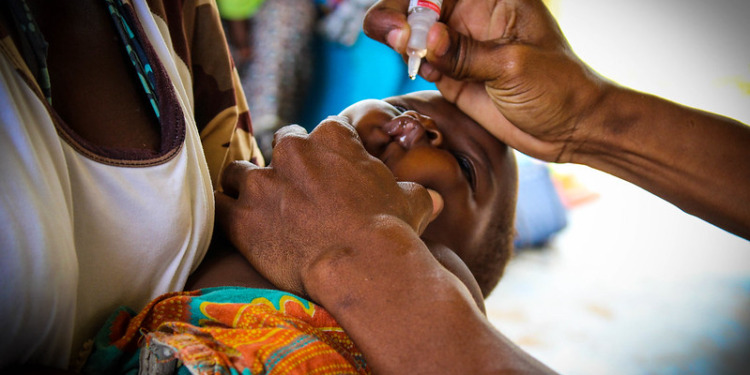The 2014-2016 West African Ebola outbreak was considered a major global threat, and was a wake-up call: It signaled serious shortcomings in the capacity of the health sector to address pandemics on a global level. Major gaps were exposed in political will, action, and sustainable financing for national public health systems to deal with health crises from the local to global levels, from prevention to preparedness and response. Also exposed was the lack of trust by communities in local health systems needed to enhance global and regional coordination and capabilities.
In response, the Global Preparedness Monitoring Board (GPMB) was created as an independent monitoring and accountability body ostensibly set up to ensure preparedness for global health crises.
Co-convened by the Director-General of the World Health Organization and the President of the World Bank, the GPMB is comprised of political leaders, agency principals and international experts (see Board member list). It is tasked with providing an independent and comprehensive appraisal for policymakers and the world about progress towards increased preparedness and response capacity for disease outbreaks and other emergencies with health consequences.
The latest GPMB report, in 2021, contained six key “key messages”, most concentrating on human health preparedness, calling for actions and reform, as can be seen below:
- Strengthen global governance; adopt an international agreement on health emergency preparedness and response and convene a Summit of Heads of State and Government, together with other stakeholders, on health emergency preparedness and response;
- Build a strong WHO with greater resources, authority, and accountability;
- Create an agile health emergency system that can deliver on equity through better information sharing and an end-to-end mechanism for research, development, and equitable access to common goods;
- Establish a collective financing mechanism for preparedness to ensure more sustainable, predictable, flexible, and scalable financing;
- Empower communities and ensure engagement of civil society and the private sector;
- Strengthen independent monitoring and mutual accountability
What is missing from GPMB advice?
Since its establishment, the GPMB has focused on its explicit mandate. Although mentioned in overview statements, “prevention” has not been a subject of its in-depth deliberations.
In recent G7 and G20 meetings, there has been greater awareness and support for doing so, with the endorsement of a “One Health” approach, one which considers the human, animal, plant, and the ecosystem interface as the most effective and sustainable route to wellbeing.
What we know all too well is that the financial and human costs of a preparedness and response to a pandemic are huge. We would all be much better served, and the costs would be far less, if we spent human and financial resources before, in short, on prevention. At least up to this point, support for prevention has been the weakest link.
In its present formulation and composition, it would be unfair to ask the GPMB to go beyond the “preparedness and response” mandate and take on monitoring efforts in preventing epidemics and pandemics.
However, building on what exists now, and with an important modification to its stated mandate, it could very well serve as the “Global Prevention and Preparedness Monitoring Board (GPPMB).
What Can be Done to expand the Board’s mandate?
To do so would require agreement among the principals, namely the World Bank and WHO to amend their stated missions; it would require having new Board members to be drawn from the animal and environmental expert communities.
Some could come from FAO, WOAH (founded as OIE), and UNEP and others such as the One Health community. For example, Anthony Fauci will retire in December from the US Government, and he is both a supporter and knowledgeable about One Health and would be a great addition to the expanded GPPMB.
Expanding the Board’s mandate to cover prevention is especially relevant and timely now that there is a need for an independent body to provide objective “monitoring” of the newly established Pandemic Prevention, Preparedness, and Response Financial Intermediary Fund (FIF).
A Global Prevention, Preparedness, and Response Monitoring Board (GPPRMB) would be a perfect fit by providing regular assessments of the extent to which the FIF is fulfilling its stated goals.
The time to broaden the Monitoring Board mandate and designate it as the entity which will perform this “honest broker” task is now, as the FIF gets organized.
The FIF Governing Board should take this up in its inaugural session. Already, as reported by the World Bank, a first step forward was taken last month, at an EU-sponsored meeting between donors and civil society representatives in Brussels. There, an agreement was reached to further engage partner countries, civil society organizations (CSOs), potential implementing entities, and other stakeholders on the FIF’s design in the coming weeks ahead of its launch.
In particular, two global CSO consultations, held on August 16 and 17 have already focused on the FIF governance framework, civil society engagement, and the Technical Advisory Panel. The next set of CSO consultations to be held on Aug. 30 and 31 will cover the FIF scope and priorities.
That will be the moment to set the ball rolling and propose to cover prevention as part of the expansion of FIF scope, including a corresponding expansion and revised role for a new Global Prevention and Preparedness Monitoring Board.
As Bill Gates said in a recent talk on TED (April 2022), “if we take the right steps, we can make COVID-19 the last pandemic and we can build a healthier, more equitable world for everyone”:
Editor’s Note: The opinions expressed here by the authors are their own, not those of Impakter.com — In the Featured Photo: A preventive medicine technician, gives a child an immunization during a “well-child” consultation at the Muecate Health Center in Nampula, Mozambique (USAID-funded campaign). As many countries faced disruptions to health services amidst the COVID-19 pandemic, USAID continued working towards equitable access to vaccines for all. Photo by Fernando Fidélis, MCSP April 29, 2020










